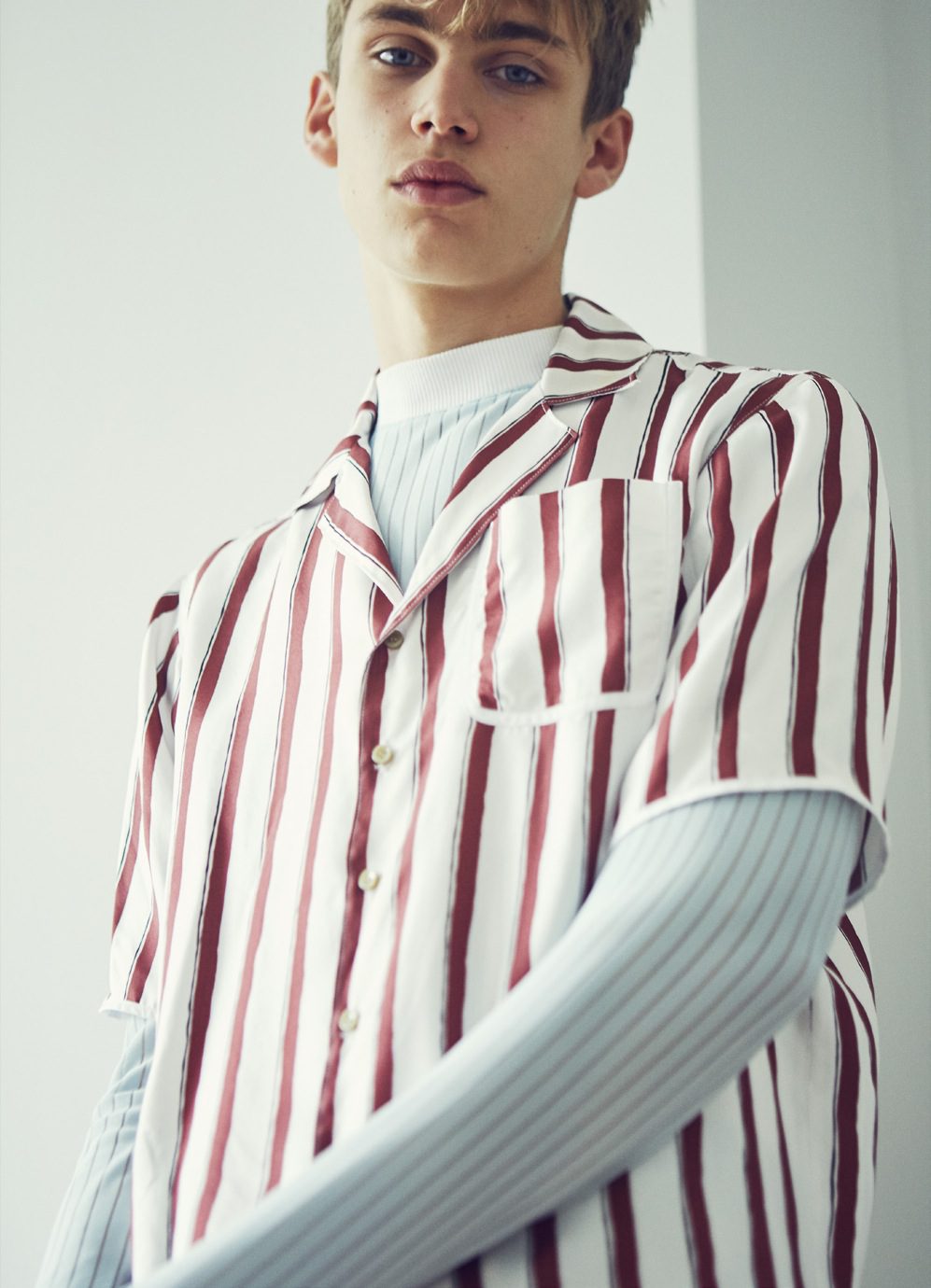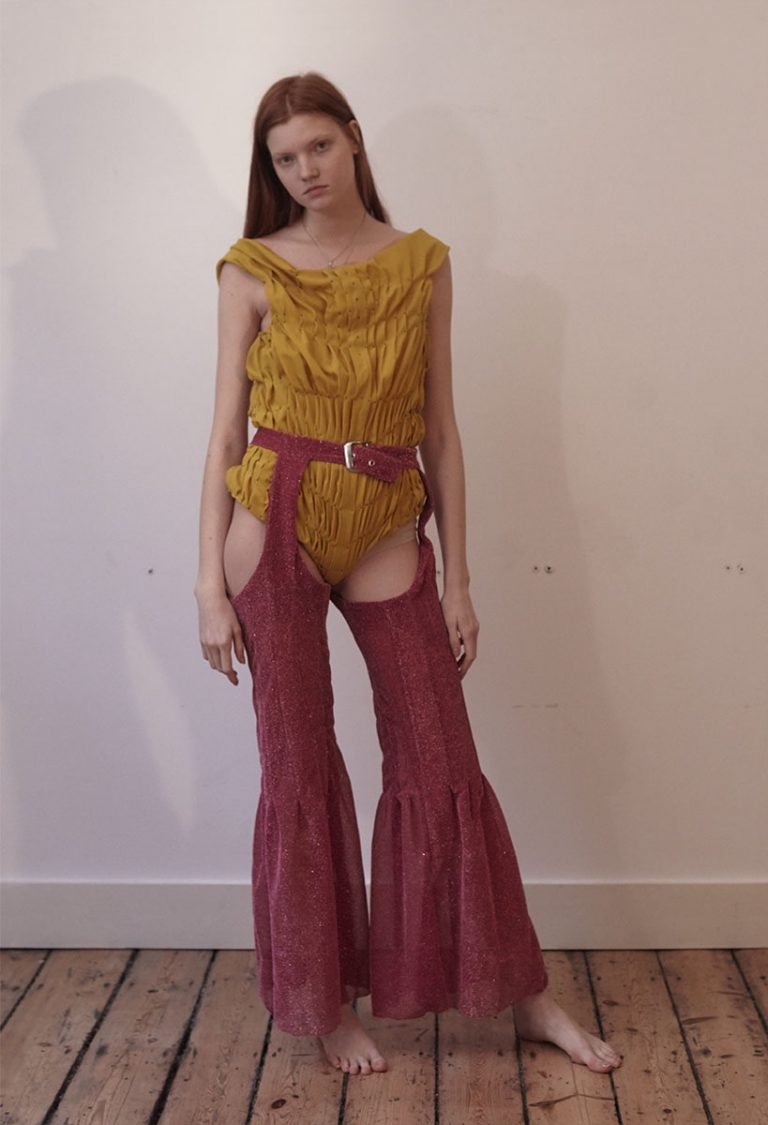Abigail: Looking at the recent viral video of a protester crashing the Paris Fashion Week Louis Vuitton runway show. As fashion students we sort of know how much work went into that show: the designs, the planning, the styling, the marketing, the production, the money. Within this context does a protest look disrespectful?
Leung: Without a doubt an immense amount of work goes into these shows, even as design students we only experience a fraction of it. However, shows and the media are in constant dialogue nowadays. I imagine protests like these do very little to phase such a large brand. The message is nothing new, we are all aware of overconsumption and as students this is an issue we’re actively striving to address through innovation. But at the end of the day for these larger brands who have been around for centuries; where there’s money, people will follow. If anything, the virality of this incident has achieved more exposure for LV.
“I’d love it if a brand like LV would lead the way with a more disruptive, ambitious response to the climate emergency and take the responsibility that is due. “
Faurschau: I don’t know anyone who doesn’t agree with the protesters’ message. The overproduction and overconsumption which is currently taking place are killing the planet and ourselves. I appreciate the work and effort that went into making that Louis Vuitton runway show. However, I have just as much, if not more, respect for the protesters actively reminding people of the state of things, pushing. As a fashion student, I think the protest made the whole show a lot more interesting and exciting. In all seriousness, we need to actively work towards a less wasteful, more circular, even regenerative fashion industry; both designers, consumers, and legislators. It’s easier said than done, and I don’t know what LV is doing to improve its systems, but at least Extinction Rebellion is raising awareness. Despite the fact that fast fashion brands are more polluting, I think protesting at a high fashion runway show is a good move since it is the place where consumerism and newness have historically been taking place and getting promoted at. I’d love it if a brand like LV would lead the way with a more disruptive, ambitious response to the climate emergency and take the responsibility that is due.
“It’s important to understand these protests as part of something larger, not a personal attack on creativity but rather an attack on an outdated industry model that’s failing this new generation. “
Abigail: How do you think you would feel if someone made a statement at the expense of your work thought? Especially if you agreed with that statement?
Leung: The statement is completely valid in my opinion and I’d like to think that it’s a strong value that comes through in my work when I produce garments. It’s important to understand these protests as part of something larger, not a personal attack on creativity but rather an attack on an outdated industry model that’s failing this new generation.
Faurschau: I think it would be a perfect opportunity to start a dialogue about how to move forward in the best and most effective way possible. I don’t think it would be at the expense of my work; on the contrary, I think it would spice things up for the better massively.
Abigail: Do the stories and rumors you hear about the lack of ethics in the fashion industry bother you? How do you balance your passion for design (or fashion studies) with your morals and ethics?
Leung: I feel like it’s becoming easier to balance my studies with my morals, finding that balance is often what drives my research and innovation when it comes to processes and construction. It’s more exciting to explore design through practices that are still being born. In education, we’re already surrounded by a lot of work developed around positive morals and ethics. These practices may not yet be present in the industry but with the direction, fashion education is heading, I’m hopeful for the future.
“I believe fashion can exist within the planetary boundaries, if we all do our research and constantly try to do better. “
Faurschau: I don’t believe in stories and rumours. I believe in facts. And it’s a fact that the industry prioritises profit over nature and people. The industry exploits nature and humans and doesn’t even pay design interns a living wage. Fashion is not inherently bad. I believe fashion can exist within the planetary boundaries, if we all do our research and constantly try to do better. To me, it sounds very appealing to start my own brand to ensure that every garment is made, used, and repurposed in a responsible, mindful way. Fashion moves faster than any other industry, and I believe fashion has the potential to be a catalyst for positive change. Fashion has the potential to show the world what is possible, what can be done, and what should be done to keep global warming at bay and reach the goals of the Paris Agreement.









